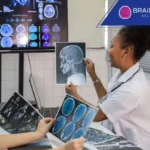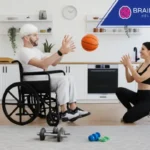Recent research has unveiled a unique form of depression following traumatic brain injuries (TBI) that could be resistant to conventional treatments. Published in the journal Science Translational Medicine, this form of depression differs from the more widespread major depressive disorder, leading researchers to term it “TBI affective syndrome.”
TBI, often resulting from head trauma or concussions, can manifest various symptoms like cognitive impairment, migraines, and light sensitivity. Harvard Medical School’s study used sophisticated MRI brain mapping to explore the brain connectivity of 273 TBI patients. They examined connectivity variations in brain networks and regions previously linked to TBI and depression.
Historically, even mild TBIs have been associated with increased risk factors for conditions such as dementia, ADHD, anxiety, Parkinson’s disease, and more. The recent findings suggest that depression stemming from TBI represents a distinct clinical condition, one more resilient to standard treatments.
The novel research utilized more advanced brain imaging techniques. Preliminary results showcased opposing brain functions in patients with traditional depression and those with brain injury-linked depression. Another 2021 study indicated resemblances in brain imaging between TBI patients and Alzheimer’s patients, highlighting potential profound brain injuries and resultant changes.
The need for alternative treatments for TBI-associated depression is pressing, given that conventional antidepressants might not suffice. The study’s authors suggest leveraging targeted MRI and transcranial magnetic stimulation to activate or deactivate brain neurons, a strategy that demonstrated preliminary success in a limited sample. Expanded research is necessary to substantiate these findings.
Have you or someone you know suffered a traumatic brain injury? Seek expert advice from the award-winning brain injury lawyers at the Brain Injury Help Center in California.
We are dedicated to helping individuals and families experiencing the effects of TBIs, as well as Alzheimer’s disease. Our compassionate team of experts is committed to providing personalized representation for each client from start to finish. Schedule a free consultation today and find out how we can help you with your legal needs.









